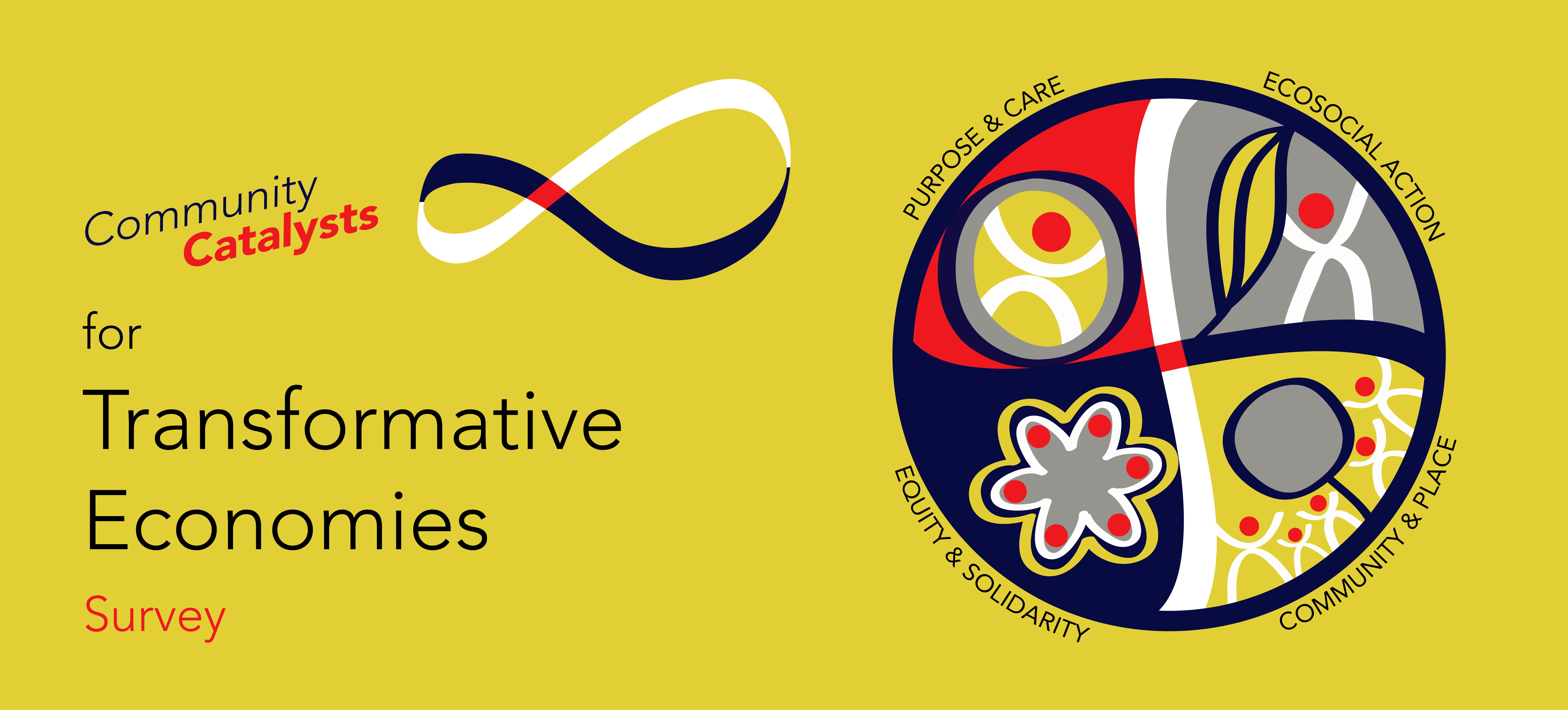Welcome to the Erasmus plus KA2 ‘Community Catalyst for Transformative Economies’ project!
If you are here, it means that you are part of an initiative or an organization that operates, or wishes to operate, in the field of Transformative Economies.
We are currently living through the devastating consequences of a global extractive economic model. Change is inevitable. We need to re-imagine and create space for emergent alternatives that can respond to these challenges.
This form serves as a community based assessment on active initiatives within the territory which will support the development of the Community Catalyst project and the dissemination of its results.
Through introducing you to the topics we prepare the ground for a conversation to go deeper into the transformative processes we are part of.
According to your availability and time, you can decide to fill the form individually or to organize a collective moment with the people you collaborate with.
The project also foresees training and events, we’ll keep you updated on that!
Thanks for joining the Catalyst Community!
If you are here, it means that you are part of an initiative or an organization that operates, or wishes to operate, in the field of Transformative Economies.
We are currently living through the devastating consequences of a global extractive economic model. Change is inevitable. We need to re-imagine and create space for emergent alternatives that can respond to these challenges.
This form serves as a community based assessment on active initiatives within the territory which will support the development of the Community Catalyst project and the dissemination of its results.
Through introducing you to the topics we prepare the ground for a conversation to go deeper into the transformative processes we are part of.
According to your availability and time, you can decide to fill the form individually or to organize a collective moment with the people you collaborate with.
The project also foresees training and events, we’ll keep you updated on that!
Thanks for joining the Catalyst Community!
